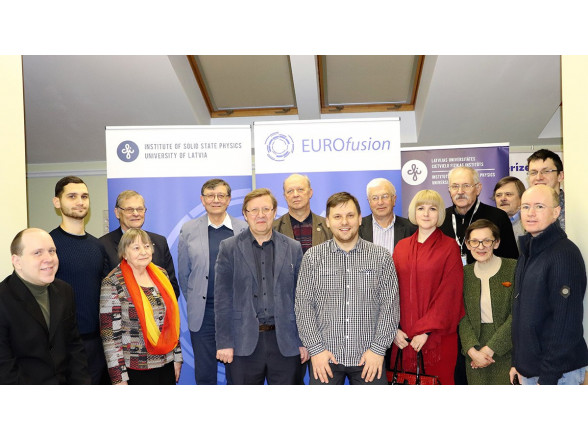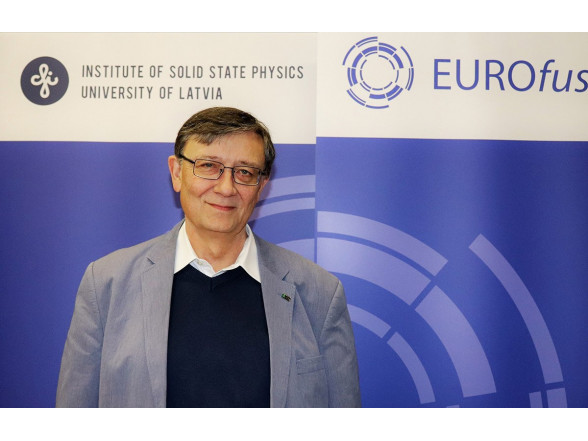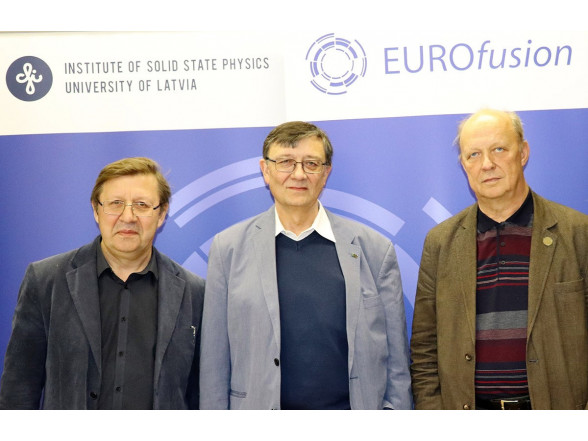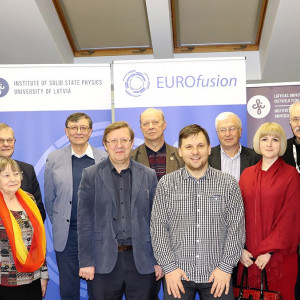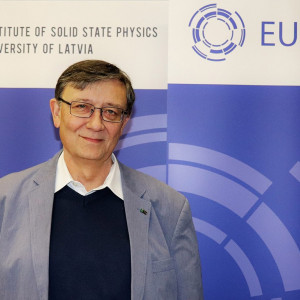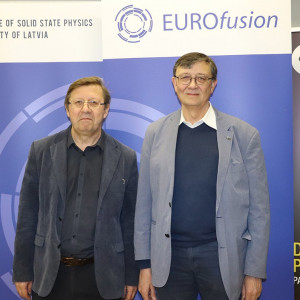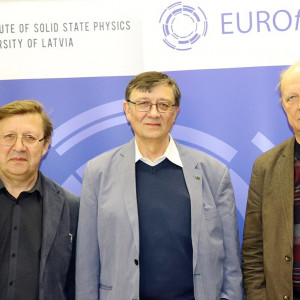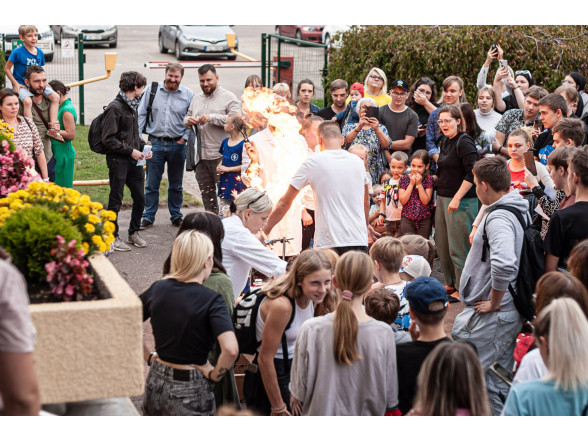Today at the Institute of Solid State Physics, University of Latvia (ISSP UL) the kick-off meeting of the EUROfusion program enabling research project “Advanced experimental and discovery of defect evolution and structural disordering in optical and dielectric materials for fusion applications – AETA” was held.
The Enabling Research projects, some beyond fusion research, are identified as a key in the pursuit of new science and technology. EUROfusion’s Science and Technology Advisory Committee acknowledges that some of these projects fill critical gaps in the EUROfusion programme.
Optical and dielectric materials are playing a substantial role in various diagnostic systems of future deuterium-tritium fusion reactors, which have to withstand 14 MeV neutron irradiation of unprecedented intensity. Thus it is of fundamental importance, to understand, control and predict their radiation damage under intensive neutron/gamma radiation environment.
To solve this problem the project AETA, led by Dr. phys. Anatoli Popov of the Laboratory of Kinetics of Self-Organized Systems, has been funded. The main objective of AETA is a detailed analysis and prediction of the performance of functional optical and dielectric materials in extreme radiation environment. Scientists from 4 laboratories of the ISSP UL and the Karlsruhe Institute of Technology (KIT, Germany) are involved in this project.

